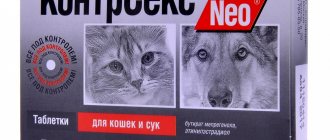preferences often surprise owners. Cats can happily eat mushrooms, fresh or canned vegetables , and other “atypical” foods . And the love of cats for olives has long been noticed by most animal owners .
Wanting to pamper a pet, the owner is ready to feed him a whole jar, naively believing that this is beneficial for the animal. But human food is not always suitable for a cat. Before giving a treat, it’s worth finding out why cats love olives and whether the Mediterranean product will harm the animal.
Why cats love olives
Cats are carnivores by nature, their usual diet is meat . Under natural conditions, cats hunt small rodents, frogs, lizards, and fish . But the body needs vitamins , then cats diversify the menu by eating grass and leaves.
At home , the pet receives the necessary substances with food. But natural instinct forces animals to try new food.
Researchers have discovered the reason why cats love the fruits of the olive tree:
- Smell . The fruit contains isoprenoids; their effect on the cat’s body is similar to the active substances of valerian. When eating or sniffing olives, the areas of the brain responsible for managing emotions are stimulated. But, unlike valerian, the euphoria from olives lasts 10-15 minutes and does not harm body .
- Taste . Brine and canned olive berries have a pleasant sour taste that cats like.
Interesting: cats react oil , as well as to dishes that contain it. Some animals even react to creams with this ingredient: they begin to lick the skin of the owner’s hands and rub their faces.
Be sure to read:
Why cats wash themselves often: 7 main reasons what to do if they stop licking their fur
Healthy delicacies
Why cats love olives now becomes clear. Furry pets quite often have kidney problems. And natural olives with pits help avoid the development of urolithiasis. At the same time, this serves as a prevention of gallstones and tartar. Intestinal function also improves.
Cats can eat a wide variety of vegetables, fruits and berries. Persimmon, watermelon, melon - each owner can continue the list of what his pet likes. That is, they choose what the body needs most at the moment. Cats have much more developed intuition, so they themselves know how to heal. Within reason, you shouldn’t interfere with them; with our restrictions, we often make things worse.
Is it possible to give your pet canned olives?
Raw olives (olives) are safe and healthy. But the owner buys a can of canned food and, enjoying the product himself, shares it with the cat.
Canned fruits are not toxic; your pet’s health may suffer due to the fact that they contain:
- Salt . Excess salty foods will lead to fluid , edema and increased stress on the kidneys.
- Preservatives . Acetic acid with the addition of other components for long-term storage. Vinegar irritates the gastric mucosa, causing disruption of the digestive tract.
- Flavors . May cause the development of allergies.
Veterinarians allow the consumption of 1-2 canned olives if the cat shows persistent interest in the product. But not often, so as not to harm your health.
Important: Olives are often sold stuffed. But lemon, almonds, fish paste (anchovies) with additional preservatives and thickeners are unnatural food for a cat. It is safer to give dark, unstuffed ones.
Causes of unusual cravings
By nature, cats are predatory animals. This is why most of the nutrients their bodies need to function must come from food. And since cats are solitary hunters, they try to look for small prey and eat often. These habits allow cats to provide variety in their diet and achieve nutritious nutrition.
All these factors influenced the development of the animal's taste buds. Already by smell, an animal can determine whether its body needs the kind of food that is in front of it. It is known for sure that sour taste and smell are very attractive to cats. And although reliable reasons why cats love olives have not been established, these preferences are generally considered to be a consequence of such factors:
- The presence of acid and bitterness in the taste and smell of the olive;
- The presence of a large amount of essential oils in the olive peel, which can act as hallucinogens on some cats.
It is because of the presence of essential oils that many cats react to olives as if they were valerian. Some pets develop temporary loss of spatial orientation or increased sexual desire.
At home, cats do not need food. In addition, food manufacturers provide pet food with all the necessary vitamins and minerals. However, natural hunting instincts and curiosity are another reason why a cat is interested in food such as olives. Having received a treat, cats can simply kick it around the floor like a ball. And animals that are not particularly fond of the smell and taste of these fruits will simply ignore them.
Very often, your pet is not interested in the olives themselves, but in the marinade in which they are found. And in order to steal the treasured jar of liquid, they are ready to jump onto the table. And then, having got it, the cat will roll for a long time on the floor where the brine was spilled. And he will definitely try to reach the very bottom of the jar, trying to lick out the remaining liquid. The reasons for this behavior lie in the large number of preservatives in this brine, as well as the extract of the fruits themselves. Thanks to this, the smell from the liquid is in most cases stronger than from the olive itself.
The benefits and harms of olives for cats
Fresh olives are beneficial for cats due to a number of components:
- antioxidants;
- vitamins A, C and E;
- microelements important for health : calcium, sodium, copper, iron.
Fresh fruits contain a lot of substances, but in canned fruits their amount is halved. More often, people buy canned food, so benefit to the cat, and preservatives and salt can be harmful.
And it is important to observe your pet’s behavior after he has been given olives. Some cats behave strangely: they roll around on the floor, rub their faces against the place where the eaten olive lay, and some individuals begin to show aggression and even rush at the owner.
The cause of behavioral changes is isoprenoids, which have a short-term hallucinogenic effect. If a cat experiences a similar reaction, then it is not advisable to give it olives.
Most felines are partial to olives. But this food is unnatural for the animal and in nature cats very rarely eat the fruits of the olive tree. You should treat your pet with such food with caution, or it is better to avoid it altogether. As a reward or treat, it is more useful to give your cat a piece of meat, fish, or special treats from a pet store.
What about Omega-3 and Omega-6 fatty acids?
Unlike their owners, cats cannot absorb beneficial substances from vegetable oils, including the “magic” Omega-6 and Omega-3 polyunsaturated fatty acids, by the way, the latter - eicosapentaenoic acid (EPA) and docosahexaenoic acid (DHA) - are practically there No.
These substances, necessary for our domestic predators, are contained only in the fat of marine fish; in addition, it is thanks to animal, and not vegetable fat, that cats receive energy for an active life. So in nature, their goal is to catch a thicker mouse, and not to gnaw on a ripe sunflower.
The answer to the question, is olive oil ok for a cat?,
who eats ready-made food - an even more categorical “no”. Everything an animal needs for a full life is already in the diet. An extra product on the menu will lead to an imbalance and will not contribute to the cat’s health in any way.
The same can be said when discussing whether a kitten can have olive oil. By adding vegetable fat to your baby's first complementary foods, you are not helping him in any way, you can only provoke an upset of the delicate digestive system.
Is it possible to treat cats with olives?
Few owners are able to resist when their pet starts asking for another tasty treat. But will such food benefit the cat’s body? Fruits for humans:
- They are a source of valuable amino acids for the body that lower the level of bad cholesterol.
- Contain a lot of calcium, iodine, magnesium.
- They are actively used in cooking and are included in a variety of recipes.
But we are talking only about people!
Even an adult should not eat more than 10 pieces. per day. Especially if it is a canned product.
Cats also need proteins, fatty acids and vitamins, which olives are rich in, as well as phosphorus, potassium, iron and other trace elements. But they can be given olives in even smaller quantities than people. They must receive all the necessary vitamins and minerals from other approved foods or prepared feeds.
Is it possible or not?
In fact, if the animal is breastfed, then there is nothing wrong with the desire to enjoy “non-cat” food at all. Most often these are vegetables. But most pets don't stop there. They try berries and fruits, and some owners are surprised why the cat loves olives. And indeed, this is not at all uncommon. Some people ask for one or two pieces if you open the jar to prepare a salad. Others are ready to turn over the entire festive table just to steal the forbidden fruit from the plate. At the same time, it remains completely unclear why the cat loves olives.
On a note
There are many known cases when a cat jumped onto a festive table and turned everything upside down in pursuit of an olive. Olives are mainly in a marinade, so it is necessary not to give them to your pet very often, since they are a canned product, and the vitamin content in them is colossal for the body of cats and humans.
We already know that this is due to the high content of vitamins and nutrients in olives; this product not only has a good effect on the cat, but also on humans. If you eat a few olives every day, you can completely forget about many diseases, remaining young and beautiful.
If you eat 20 olives with pits in a month, you can avoid kidney and bladder stones, gallstones and dental stones will not form. Intestinal function will improve like clockwork. Cats can eat turnips, radishes, radishes. Cats go as crazy over canned sweet corn as they do over olives.
Persimmons, watermelons, melon, eggplant caviar - these are all delicacies for our cats. Many cats themselves choose which vegetable they need, especially if they are sick with something, since cats have a much higher developed intuition than humans. Therefore, the cat knows what treatment it needs. There is no need to prevent this and forbid the cat to feast on this or that vegetable. To the delight of gastroenterologists, man has elevated food intake to a cult. Cats are much more intelligent than us in this regard - they eat to live, and do not live to eat. There is no need to impose human vices on these beautiful creatures.
Well, a little bit of cat positivity!
Sometimes cats like foods that, according to conventional wisdom, are of no interest to predators. These can be raisins, plums, bananas, canned vegetables. One such product is olives. Many cat owners pay attention to the fact that as soon as they start opening a jar of canned olives, the pet immediately begins to beg for them. There is no scientific explanation for why cats love olives, but there are several logical assumptions.











